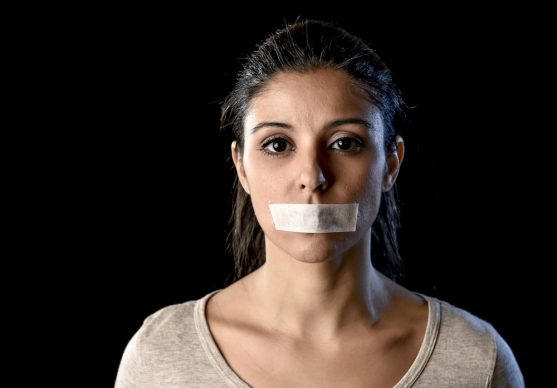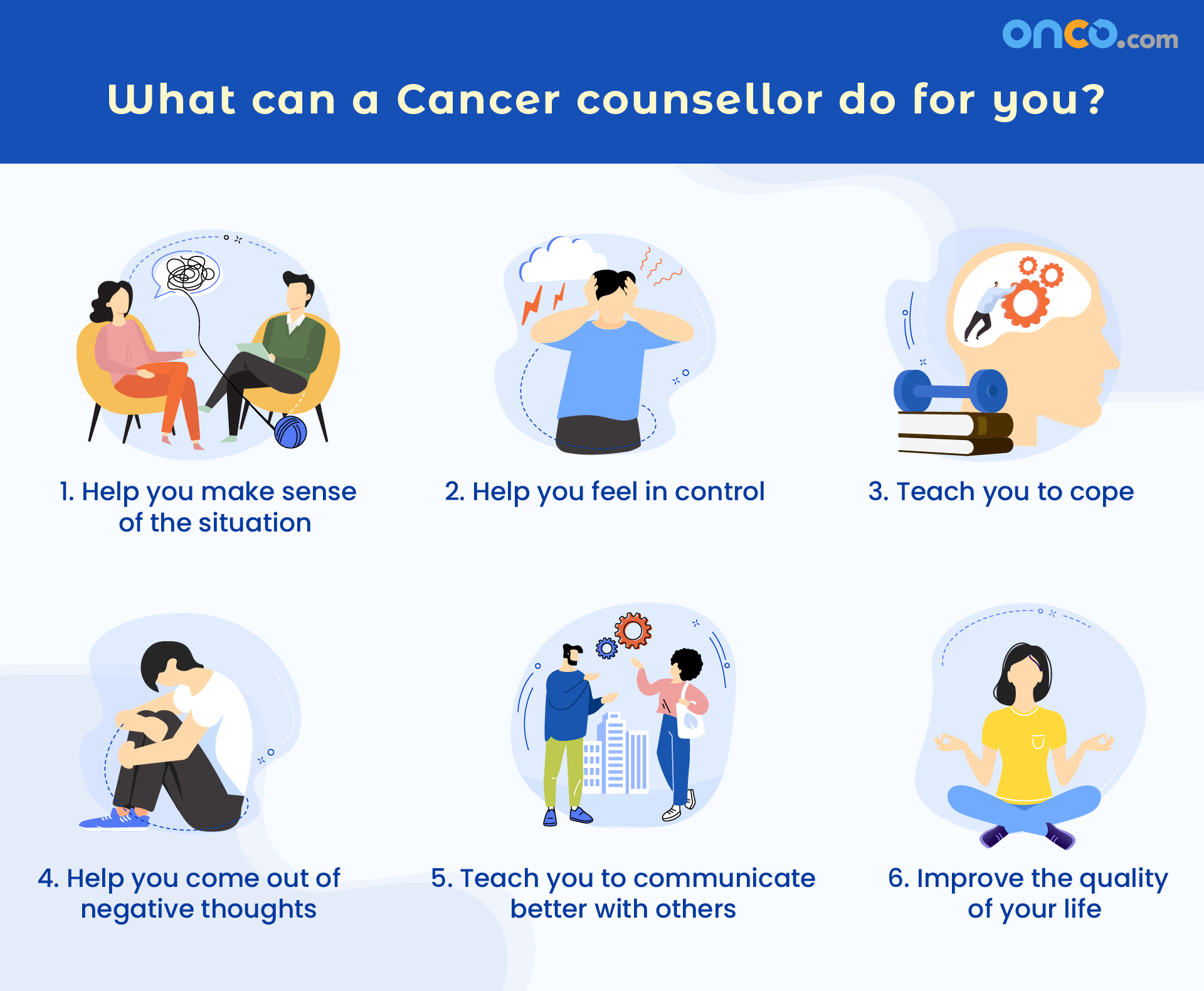Cancer counsellor Bincy Mathew explains how counselling can help cancer patients and their family to cope with the diagnosis, treatment and life after cancer.
When a person is diagnosed with cancer, they often feel their life has come to a sudden halt. No one is really prepared to face such difficulties in life, so if someone feels like that, it is completely normal.
When morale is down, the spirit is broken and things start to go in a downward spiral. Even today, in many parts of the world, a total cultural silence reigns at the mention of the word ‘Cancer’.
There are so many deep rooted myths among people, that a cancer patient might not even want to reveal the diagnosis. This lack of communication can put tremendous pressure on patients and their caregivers.

The worst part is this: people do not realise how this silence is going to negatively impact their life and their treatment journey.
You can read more about why it is important for cancer patients and caregivers to talk about their feelings, here.
This article will help you understand a few things that every patient and caregiver must know about during their cancer journey.
Why do I need counselling?
-
To prevent depression
Cancer and its treatments have a notable impact on both the patient and their family. If their psychological distress is undetected or untreated, there could be significant negative consequences for both the patient and the family. If they are associated with some past psychiatric conditions, then they are at the higher risk of suicidal tendencies.
-
To reduce stress and loneliness
Caregivers experience a lot of unmet needs and their stress level varies during the treatment journey. Sometimes they do experience a great deal of loneliness when they are inadequately equipped to deal with the emotional issues. If this continues without the right support, it may lead to psychological issues like depression and anxiety disorders.
-
To improve overall health
Your mental health can affect your physical health. Sometimes maladaptive coping and untreated distress could negatively impact adherence to treatment. Patients who are able to manage stress levels and stay motivated during their cancer journey are likely to have a better quality of life.
Are mental health issues common among cancer patients and caregivers?
According to scientific studies, 70% of cancer patients experience moderate to severe psychological distress. Cancer patients have to deal with a multitude of emotional effects and experiences during the treatment journey such as loss of certainty, fear of cancer recurrence, need to depend on others etc.
The cancer caregivers are also performing complex tasks, along with shouldering most of the physical, emotional, spiritual and financial burden. Studies have established that they do experience a variety of psychological symptoms during uncertain times. It was found that 95% of cancer caregivers experience severe sleep disturbances and fatigue while taking care of the cancer patients.
What is counselling?
Counselling is a mutual relationship between the therapist and a client. Sometimes it is also called talking therapy. It involves a therapist listening to you and helping you find ways to deal with emotional issues in an effective manner.
During a counselling session, the therapist will encourage you to speak about your feelings and emotions. They are trained to help you without judging you.
Eventually people express their feelings, such as anger, sadness, and guilt, and discuss things that they find difficult sharing with others. Sometimes, the patient does not even know what bothers them.
A good friend or a family member can always help you by listening to you, but a counsellor can help you put your difficulties into perspective, highlight coping strategies and eventually recognize areas of strength. They can also help you to deal with managing difficult emotions such as anger, low self-esteem, fear of uncertainty, fear of cancer recurrence etc.
Counselling is for anyone who’s going through a bad time or has emotional problems (stress, anxiety and depression) they need help with.
How does counselling help?
- The counsellor uses various evidence-based psychological therapies that help cancer patients and caregivers to cope with the situation.
- The therapist will help you to know and make sense of the situation in an effective manner. Also to help with tactics for feeling more in control.
- The therapist will help you to develop new approaches to cope, and oversee how they work out in practice.
- The counselling session will help you to come out of distressing thoughts and feelings and enhance the quality of life of cancer patients and their loved ones.
- After the counselling sessions you will find better ways of communicating with the people around you and to see things from a different perspective.
What to expect from a counselling session at Onco.com?
We at onco.com offer teleconsultation therapy for your convenience.
Once you start with our service you will have a dedicated medical doctor as your care manager and he/she will remain your primary contact throughout the journey to ensure you have the best support you need.
After a basic analysis the care manager will arrange your counselling session with a therapist.
We start with a brief 40-45 minutes session after obtaining informed consent from the one who is being counseled. Sometimes, the first session may last longer if need be.
There may be times when the patient/client feels tired during the session. We keep the sessions flexible according to their convenience.
The sessions can be done over a telephone call or video call on video meeting apps.

In the first session, the therapist tries to understand various dimensions of your life including the disease, its treatment, your childhood, education, relationship with the family and social circle etc. This helps the therapist understand the exact context very well.
We believe each person is unique and the problems are unique too, hence we make highly customised paths for each client to achieve the maximum results at the earliest.
Primarily, the first session is done for a psychological assessment and to understand the best coping mechanisms for the client. However, the therapist might consider prescribing some activities to be completed before the next session or may recommend some simple relaxation exercises, if necessary.
In the following session, the therapist will start administering various exercises and more activities to tackle the problems one by one.
It starts at a slow pace to ensure the change is seamless and the effort is gradual.
You will soon start seeing positive results when adhering with the prescribed activities and exercises.
At Onco.com we do not want to leave any stones unturned for the best possible results from your cancer treatment.
What should you do after the first counselling session?
After the first session, you need to think about how the first session went.

You have to remember that there won’t be a ‘cure’ immediately after the first session. Although you may feel relieved or relaxed talking to your therapist in the first session, it will not make your problems disappear immediately.
Based on how you feel, you can choose to continue with more sessions. Over a few weeks, you might start noticing better results.


